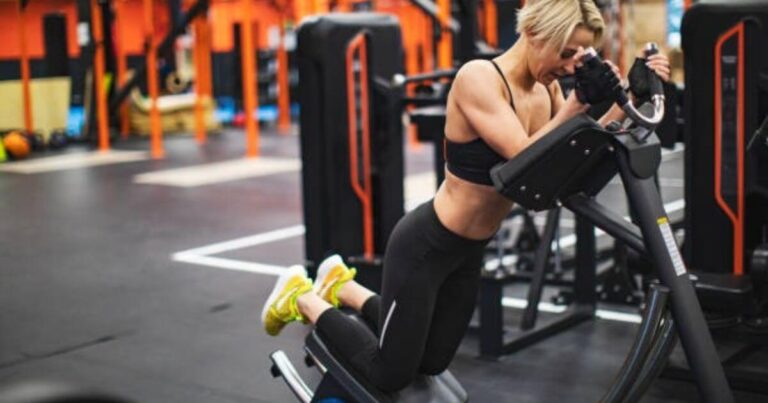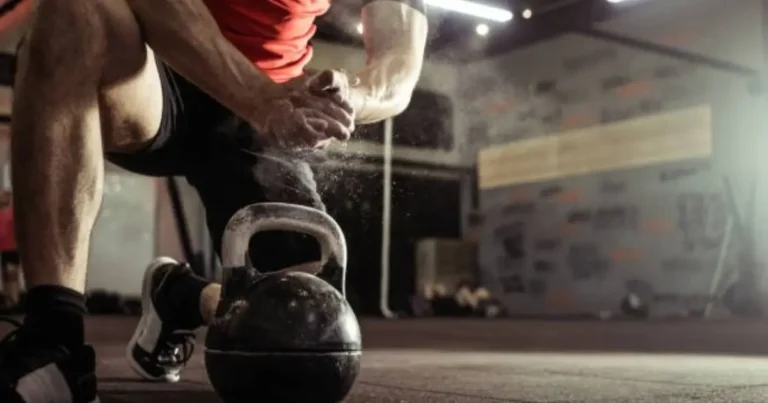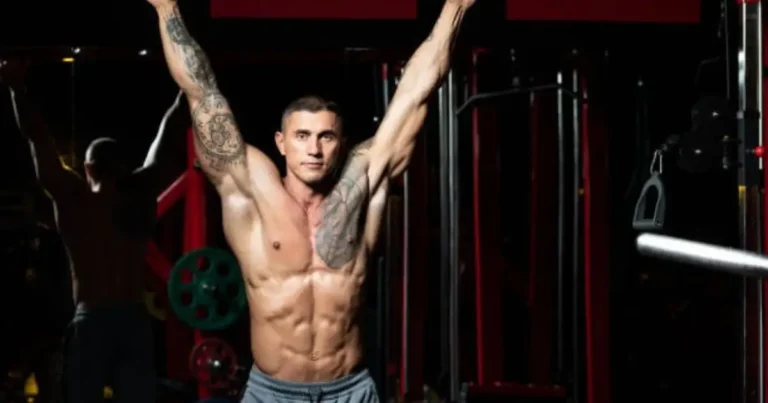Kettlebell Shoulder Workout: Build Strong and Defined Shoulders for Total Upper Body Strength
Strong, defined shoulders not only improve your physique but also boost overall upper body strength, enhance posture, and prevent injuries. A kettlebell shoulder workout offers a dynamic and effective way to develop those muscles, thanks to kettlebells’ unique shape and versatility. They engage your stabilizer muscles, improve coordination, and maximize muscle activation—all while challenging your shoulders through natural, functional movements.
Whether you’re a beginner or looking to add variety to your training, this guide covers everything you need to know to sculpt powerful shoulders with kettlebells. You’ll get expert insights, key exercises, and personalized tips for a balanced, injury-resistant upper body.
Table of Contents
Why Choose a Kettlebell Shoulder Workout?
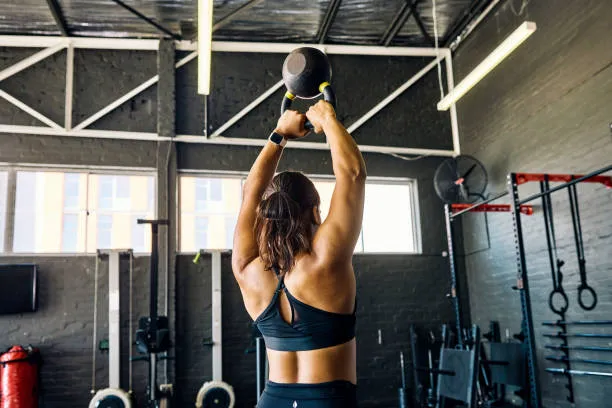
Kettlebells differ from traditional dumbbells and barbells because their center of mass is offset from the handle. This design forces your muscles—especially the shoulders—to work harder to stabilize and control each movement. This leads to:
- Greater muscle engagement: Activates all three heads of the deltoid (anterior, lateral, and posterior).
- Improved joint stability: Strengthens rotator cuff and shoulder stabilizers.
- Enhanced functional strength: Mimics real-world movements to improve everyday performance.
- Increased calorie burn: Combines strength and cardio, boosting fat loss and muscle definition.
“Kettlebell training is a powerhouse for shoulder strength because it builds control and power simultaneously, unlike isolated machine workouts.” – Fitness Expert
Anatomy of the Shoulder: Understanding the Target Muscles
Before diving into the exercises, here’s a quick rundown of the shoulder muscles targeted in your kettlebell workout:
| Muscle Group | Function |
|---|---|
| Anterior Deltoid | Front of the shoulder; raises the arm forward (flexion). |
| Lateral Deltoid | Side of the shoulder; lifts the arm sideways (abduction). |
| Posterior Deltoid | Back of the shoulder; pulls the arm backward (extension, external rotation). |
| Rotator Cuff | Deep muscles around the shoulder joint; stabilize and rotate the arm. |
Top Kettlebell Shoulder Exercises to Build Strength & Definition
Here are five foundational kettlebell movements that cover all aspects of shoulder development. Perform these with strict form to maximize gains and minimize injury risk.
1. Kettlebell Overhead Press
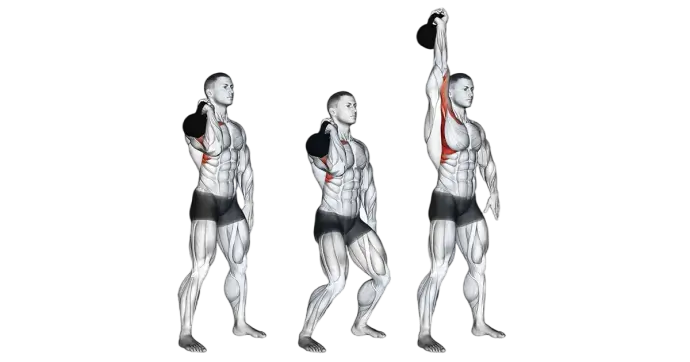
- Muscles worked: Anterior and lateral deltoids, triceps.
- How to do it:
- Hold the kettlebell at shoulder height with your palm facing forward.
- Brace your core, then press the kettlebell overhead until your arm is fully extended.
- Lower with control and repeat.
- Tips: Avoid arching your back; keep your spine neutral and engage your core throughout.
2. Kettlebell Halo
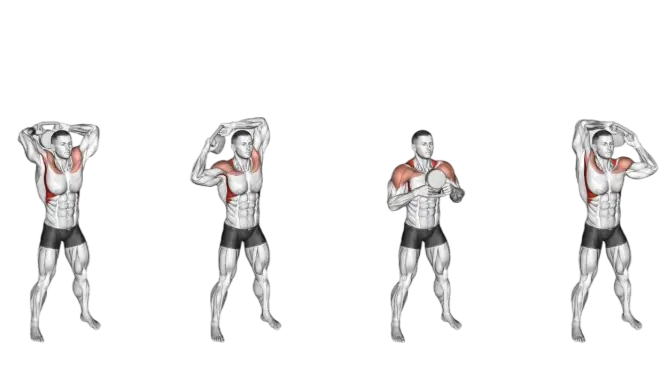
- Muscles worked: Rotator cuff, deltoids, trapezius.
- How to do it:
- Hold the kettlebell by the horns at chest level.
- Slowly circle it around your head, maintaining control and keeping elbows slightly bent.
- Reverse direction after a set number of reps.
- Benefits: Improves shoulder mobility and strengthens stabilizers.
3. Kettlebell Upright Row
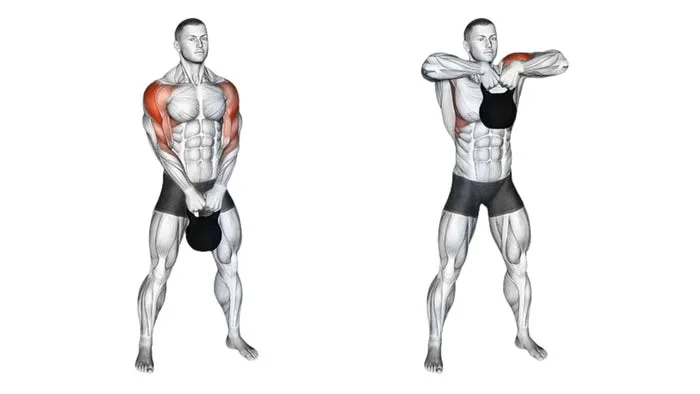
- Muscles worked: Lateral deltoid, traps, rhomboids.
- How to do it:
- Grip the kettlebell with both hands in front of your thighs.
- Pull it straight up toward your chin, keeping elbows higher than wrists.
- Lower it back slowly and repeat.
- Caution: Keep your wrists straight and avoid excessive momentum.
4. Kettlebell Reverse Fly
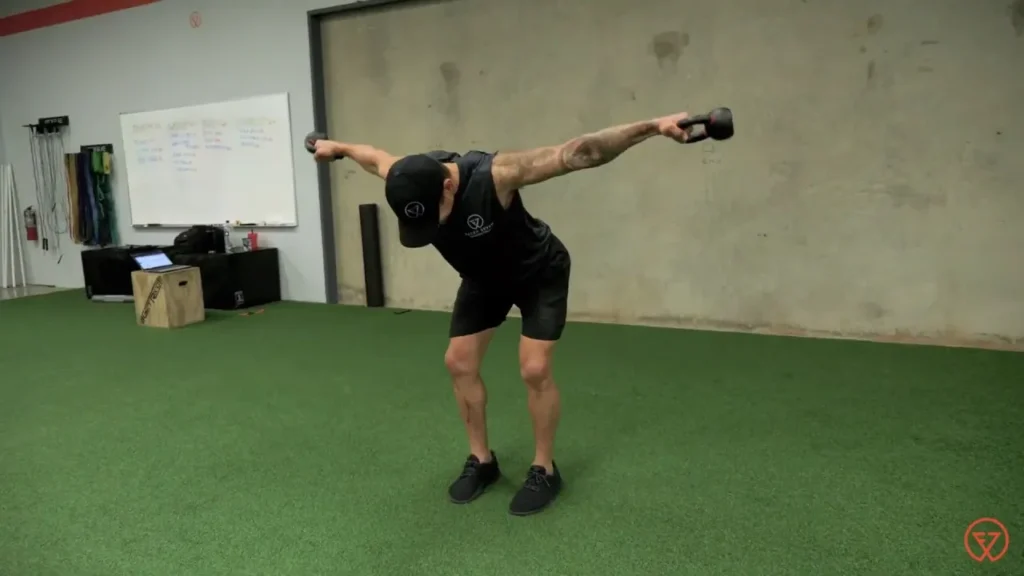
- Muscles worked: Posterior deltoid, upper back.
- How to do it:
- Bend forward at hips with a kettlebell in each hand, arms hanging down.
- Keeping a slight bend in elbows, lift the weights out to the sides until your shoulder blades squeeze together.
- Lower with control.
- Tip: Focus on slow, controlled movement to avoid swinging.
5. Kettlebell Push Press
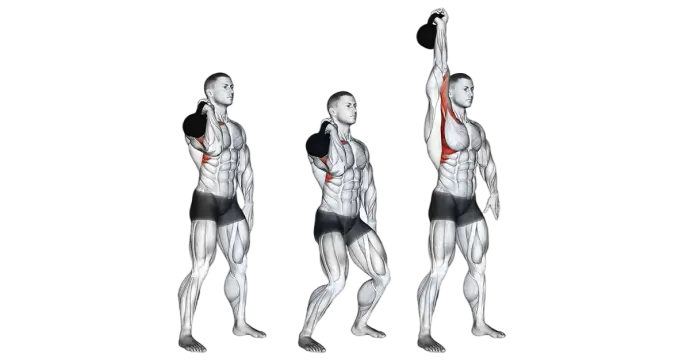
- Muscles worked: Shoulders, triceps, legs (for power generation).
- How to do it:
- Hold the kettlebell at shoulder level.
- Slightly dip your knees and explosively drive the kettlebell overhead using leg momentum and arm strength.
- Lower back down slowly.
- Why it’s great: Builds explosive shoulder power and integrates full-body coordination.
Sample Kettlebell Shoulder Workout Plan
Try this beginner-to-intermediate plan designed for strength, stability, and muscle definition:
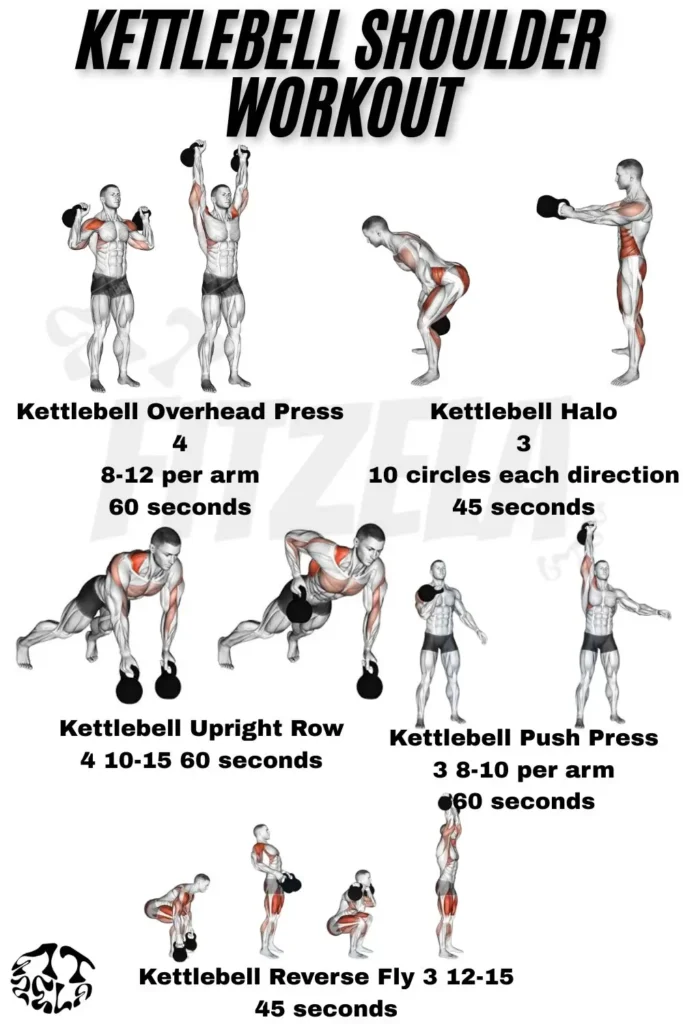
| Exercise | Sets | Reps | Rest Between Sets |
|---|---|---|---|
| Kettlebell Overhead Press | 4 | 8-12 per arm | 60 seconds |
| Kettlebell Halo | 3 | 10 circles each direction | 45 seconds |
| Kettlebell Upright Row | 4 | 10-15 | 60 seconds |
| Kettlebell Reverse Fly | 3 | 12-15 | 45 seconds |
| Kettlebell Push Press | 3 | 8-10 per arm | 60 seconds |
Personalizing Your Kettlebell Shoulder Workout
- For beginners: Start with a light kettlebell (~8-12 kg). Focus on mastering form before increasing weight.
- For intermediate users: Gradually increase reps or add an additional set.
- For advanced trainees: Incorporate supersets (e.g., overhead press followed immediately by push press) or timed circuits to boost intensity.
Tips for Maximizing Results and Avoiding Injury
- Warm-up properly: Use dynamic stretches like arm circles and band pull-aparts to prepare your shoulders.
- Maintain good posture: Keep shoulders down and back during exercises to avoid impingement.
- Control your movements: Avoid swinging or using momentum—focus on deliberate, controlled reps.
- Listen to your body: Stop if you feel sharp pain; mild discomfort is normal, but not injury pain.
- Recover well: Adequate rest, hydration, and nutrition support muscle growth and joint health.
Nutrition & Recovery for Strong Shoulders
To complement your kettlebell shoulder workout:
- Eat protein-rich foods: Chicken, fish, legumes, and dairy help repair muscle tissue.
- Include healthy fats: Avocados, nuts, and olive oil reduce inflammation and support joint health.
- Stay hydrated: Water keeps muscles pliable and joints lubricated.
- Get quality sleep: Aim for 7-9 hours per night to optimize recovery.
Common Questions About Kettlebell Shoulder Training
| Question | Answer |
|---|---|
| How often should I train shoulders? | 2-3 times per week with 48 hours rest between sessions. |
| Can kettlebells help with shoulder mobility? | Yes, exercises like kettlebell halos improve range of motion. |
| What weight kettlebell should I start with? | Beginners should choose a weight that allows 8-12 controlled reps. |
Explore More: Related Workouts & Resources
- Joe Rogan Kettlebell Workout: Explore the Routine Behind His Strength
- Kettlebell Chest Workout: Sculpt and Strengthen Your Pecs
- The Ultimate Kettlebell Workout Guide: Build Strength, Power & Endurance
Final Thoughts: Why Kettlebell Shoulder Workouts Are a Game-Changer
Integrating kettlebells into your shoulder training builds strength, stability, and muscle definition in a way that traditional weights often can’t match. Their dynamic nature trains your muscles and nervous system to work in harmony, which not only sculpts powerful shoulders but also reduces injury risk and improves overall upper body performance.
Ready to transform your shoulders with kettlebells? Start slow, focus on form, and watch your strength and confidence soar.



